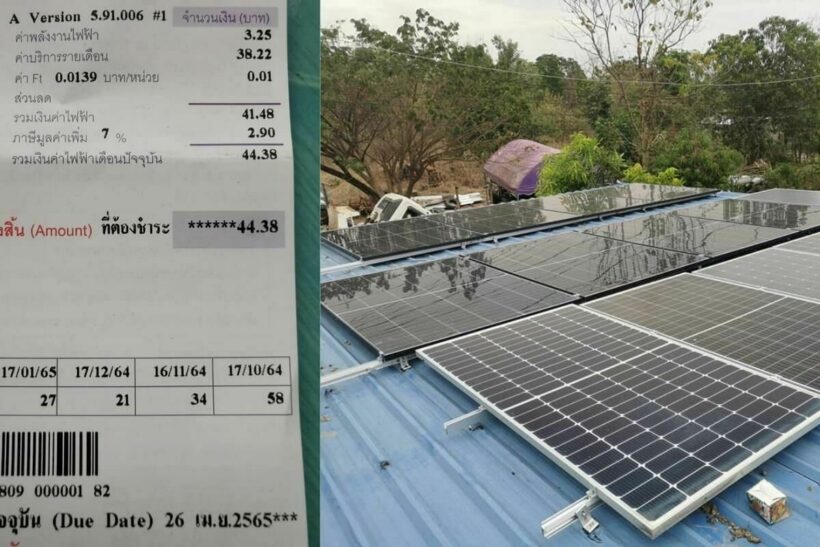Northern Thai man reveals secret to 44 baht electricity bill

In Thailand, the price of your electricity bill almost completely depends on your use, or non use, of air conditioning, especially if you decided to sleep with it on. But one man in Phitsanulok, central Thailand, found a way to get his bill down from 4000 baht to just 44 baht, yet keep his air conditioner on all day and night…
Despite Hasthanon Lakluang keeping three 12,000 BTU air conditioner units turned on 24 hours a day, he pays next to nothing to turn his house into a haven of cool air in Thailand’s sweltering summer months.
On Saturday, Hasthanon posted pictures online of his house covered in solar panels. Before, he was paying 4,000 – 5,000 baht every month for electricity. Since investing in solar power, he pays as little as 44 baht every month.
Perhaps Hasthanon was inspired by one of Thailand’s largest solar farms, covering 1,850 rai, which is located in Phitsanulok.
There is a small catch. If you have the money to install solar panels in your home, you will definitely save money in the long run. However, not everyone can afford to pay around 300,000 baht to have solar panels installed in their home like Hasthanon did.
The Ministry of Agriculture and Cooperatives recently made plans to install solar panels in at least one million farms across Thailand to help reduce electricity bills for farmers amid the global energy crisis which continues to make electricity and fuel prices climb.

SOURCE: The Nation
Latest Thailand News
Follow The Thaiger on Google News:


























